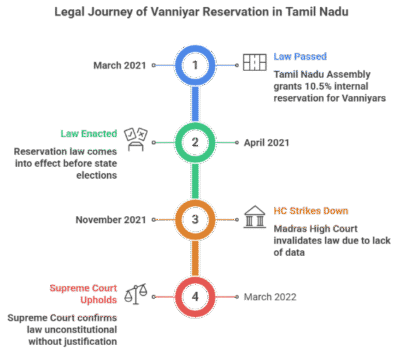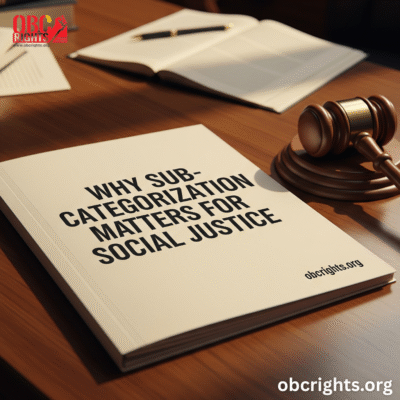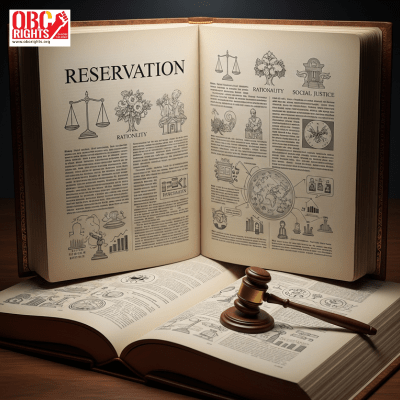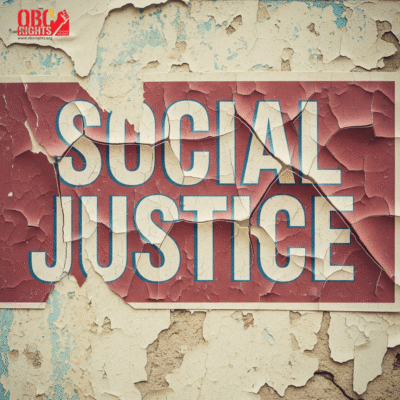Published – September 13, 2025
Roots of the Vanniyar Movement
The Vanniyar community, placed under MBC in Tamil Nadu, has long argued that they are underrepresented in state jobs and higher education compared to their population size. Their demand for a separate quota stems from the belief that other castes within the MBC dominate access to benefits. The 2021 internal reservation law was the result of years of mobilization and protest. However, its short-lived implementation exposed the challenge of balancing caste equity with constitutional safeguards.

Why Talk About OBC Sub-Categorization?
Without internal division, advanced OBC groups tend to monopolize seats and jobs, leaving the most backward behind. This creates resentment, as seen in the Vanniyar protest, where a community demanded its rightful share. Sub-categorization is not about reducing rights; it is about ensuring equitable distribution of opportunities within OBCs.
The Larger National Debates
1. Unequal Access Within OBCs
Data from states such as Tamil Nadu, Karnataka, and Andhra Pradesh reveal a pattern: only a handful of castes within the OBC category manage to secure a large share of jobs and admissions. This creates a “creamy layer” effect within OBCs, not just between the rich and poor but also between dominant and marginal castes.
2. Political and Legal Hurdles
While the logic of sub-categorization is strong, implementation faces roadblocks. Politically, governments hesitate to divide OBCs because it risks upsetting established vote banks. Legally, the Supreme Court has raised questions about whether states have the authority to carry out sub-classifications without central approval.
The fight between fairness and practicality has kept the demand unresolved, even though it impacts millions of students across India.
National Lessons from Tamil Nadu
The agitation in Tamil Nadu offers important lessons for India as a whole. On one hand, it shows that communities left behind will not remain silent forever. On the other, it proves that quick political solutions without proper legal and data support can backfire.
The idea of OBC Sub-Categorization is not about reducing anyone’s rights. It is about making sure that all groups under OBCs—big or small—get fair access to education, jobs, and opportunities. True equality means sharing benefits, not letting a few groups take most of them.
Moving Forward with Inclusive Justice
The real goal of a reservation is to bring balance and fairness to society. If benefits are taken mostly by stronger OBC groups, then the weaker ones are pushed further down. The Vanniyar Reservation Protest is a reminder that reforms must be guided by evidence, fairness, and long-term vision, not just political pressure.

Time for Fair Reform
Reservation remains a lifeline for millions, but its benefits must be shared fairly. Sub-categorization is a step towards inclusive justice, where no group feels left behind. Policymakers must act with courage and clarity—guided by data, fairness, and transparency. The path ahead is not about protecting the privileged few but about uplifting every backward community. India cannot afford to delay. The time to move towards a fairer system is now.



